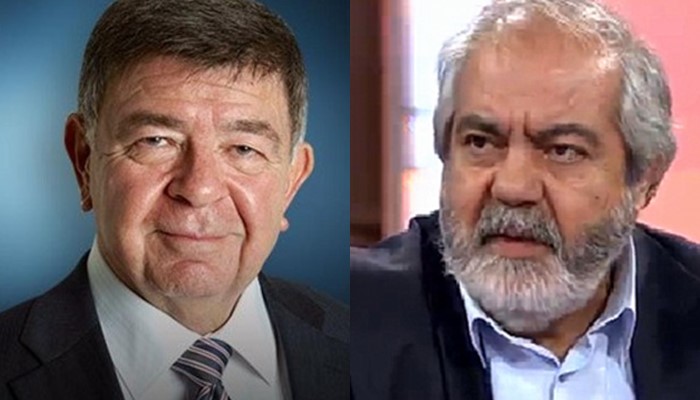PEN International, ARTICLE 19, the European Centre for Press and Media Freedom, the European Federation of Journalists (EFJ), Human Rights Watch, the Index on Censorship, the International Press Institute and Reporters Without Borders (RSF) have expressed dismay that a decision by Turkey’s Constitutional Court to release jailed journalists Şahin Alpay and Mehmet Altan has not been carried out by two lower courts, citing implications for the rule of law in Turkey.
“We are profoundly concerned about the lower courts’ lack of implementation of this historic decision by the Constitutional Court and that it is the direct result of political pressure on the court, which would amount to interference with its independence. Together, this gravely undermines the separation of powers and the rule of law in Turkey,” said Carles Torner, executive director of PEN International. “Basic principles of justice, both legal and moral, require the lower courts to implement this decision and release these journalists – who have languished in prison for over a year – without delay.”
The Constitutional Court had ruled earlier on Thursday that jailed journalists Altan and Alpay be released, saying their rights had been violated.
İstanbul’s 26th and 13th High Criminal Courts on Thursday evening refused to comply with the order to release the journalists.
“The EFJ is demanding that journalists be freed immediately following the decision of the Turkish Constitutional Court. The refusal of the 13th and 26th Criminal Courts to implement the decision of the upper court is a direct attack on the rule of law and the independence of the judiciary”, said Ricardo Gutierrez, general secretary of the EFJ.
These were the first rulings that the Constitutional Court had made involving detained journalists since an attempted coup in July 2016, following which scores of journalists were detained. Ruling on individual applications filed on behalf of Alpay and Altan, the court said their detentions led to violations of the “right to personal liberty and security” protected under Article 19 of the Constitution and “freedom of expression and the press” protected under Articles 26 and 28.
The court stated that “press freedom as a specific element of freedom of expression has vital importance in democracies. It includes not only the dissemination of ideas and information, but also society’s access to those ideas and information,” dovetailing the European Court of Human Rights’ (ECtHR) jurisprudence on the role of journalism and the importance of press freedom in a democratic society. The decision was taken by an 11-6 majority vote. It was widely expected that the ruling would set the precedent for the release of other journalists in the country.
Lawyer Veysel Ok, who made the application to the Constitutional Court on behalf of Alpay, said the top court’s decision could be a milestone for the trials of journalists in Turkey.
“This ruling, which came in the first application after the failed coup attempt, should set a precedent for all trials,” said Ok, adding, “I hope this ruling becomes the first step of a broader right to freedom of expression in the country.”
Under the Turkish Constitution’s Article 153, all Constitutional Court rulings enter into force immediately and are binding for the legislative, executive and judicial organs, including the administration and officials.
The reaction from the deputy prime minister and government spokesperson, Bekir Bozdağ on Friday, was disturbingly similar to the reasoning of the lower court issued later in the day. He objected to the decision, claiming that the Constitutional Court had “exceeded” its authority. Bozdağ, who served as justice minister for several years until the latest Cabinet reshuffle last July, tweeted: “The Constitutional Court has acted as a first instance court by making an assessment of the case and the evidence. … The Constitutional Court cannot act as a Supreme Court of Appeals.”
“The Constitutional Court does not know the case. The right decision will be taken by the court of first instance,” Prime Minister Binali Yıldırım told reporters on Friday, adding that the top court should not weaken the fight against the faith-based Gülen movement, which the government accuses of masterminding the 2016 coup attempt.
Altan, a professor of economics at İstanbul University and a columnist known for his liberal views and criticism of the government, and Alpay, a veteran journalist and columnist for the now-closed Zaman and Today’s Zaman dailies, were jailed in a crackdown on media after an abortive coup in Turkey on July 15, 2016.
The two are charged with membership in a terrorist organization, abetting a coup against the government and attempting to destroy the constitutional order. Prosecutors also accuse the suspects of links to the faith-based Gülen movement, blamed by the Turkish government of having masterminded the putsch.
Mehmet Altan was arrested along with his brother Ahmet Altan, a novelist and former editor-in-chief of the closed-down Taraf daily, on charges of sending “subliminal messages” to coup plotters in a TV program on July 14, a day before the coup attempt.
(Source: Reporters Without Borders website)

